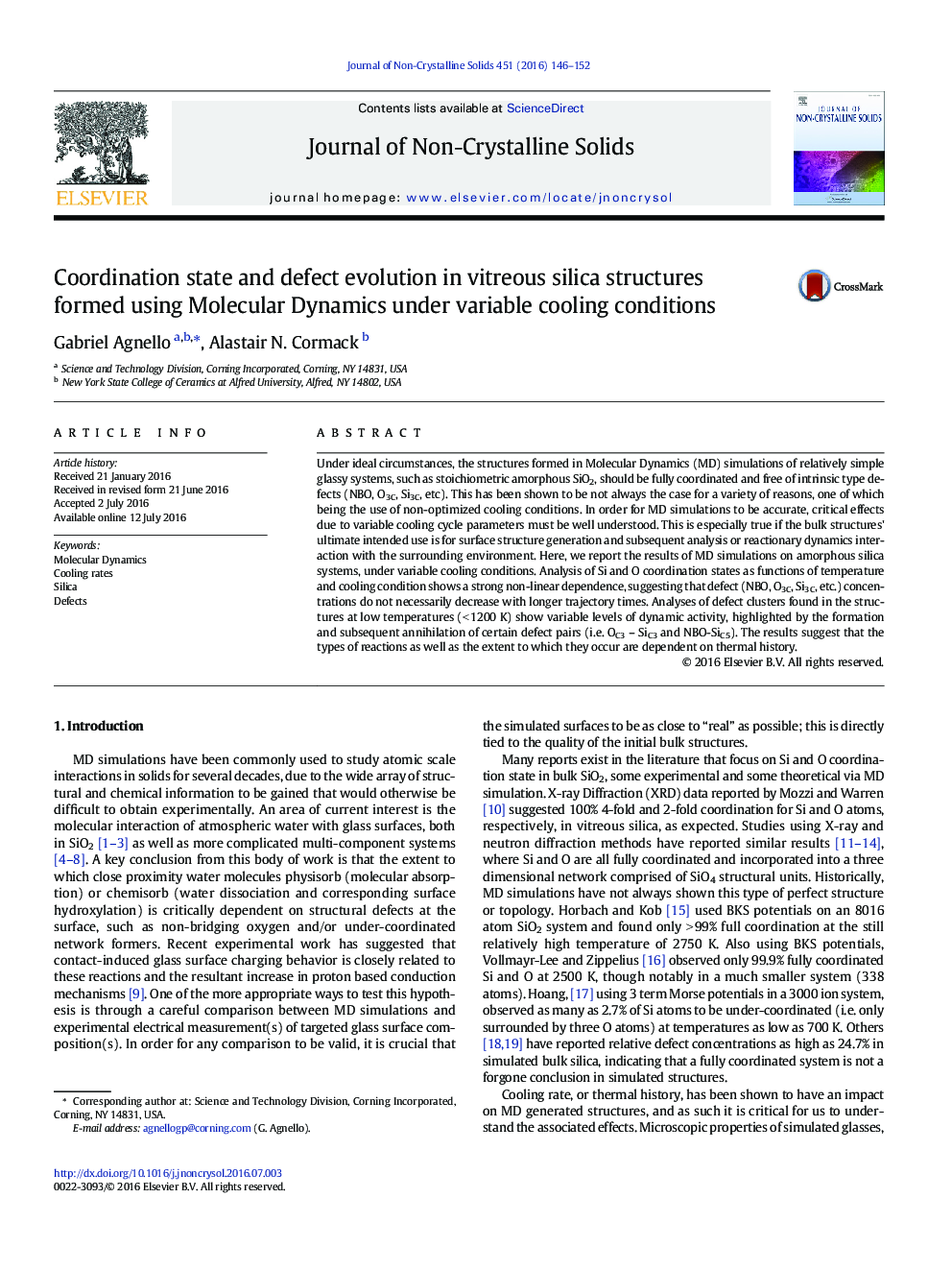| کد مقاله | کد نشریه | سال انتشار | مقاله انگلیسی | نسخه تمام متن |
|---|---|---|---|---|
| 5441473 | 1510395 | 2016 | 7 صفحه PDF | دانلود رایگان |
عنوان انگلیسی مقاله ISI
Coordination state and defect evolution in vitreous silica structures formed using Molecular Dynamics under variable cooling conditions
ترجمه فارسی عنوان
وضعیت هماهنگی و تکامل نقص در ساختارهای سیلیکا شیشه ای شکل گرفته با استفاده از دینامیک مولکولی در شرایط سرد شدن متغیر
دانلود مقاله + سفارش ترجمه
دانلود مقاله ISI انگلیسی
رایگان برای ایرانیان
کلمات کلیدی
دینامیک مولکولی، نرخ خنک کننده، سیلیکا، عیوب،
موضوعات مرتبط
مهندسی و علوم پایه
مهندسی مواد
سرامیک و کامپوزیت
چکیده انگلیسی
Under ideal circumstances, the structures formed in Molecular Dynamics (MD) simulations of relatively simple glassy systems, such as stoichiometric amorphous SiO2, should be fully coordinated and free of intrinsic type defects (NBO, O3C, Si3C, etc). This has been shown to be not always the case for a variety of reasons, one of which being the use of non-optimized cooling conditions. In order for MD simulations to be accurate, critical effects due to variable cooling cycle parameters must be well understood. This is especially true if the bulk structures' ultimate intended use is for surface structure generation and subsequent analysis or reactionary dynamics interaction with the surrounding environment. Here, we report the results of MD simulations on amorphous silica systems, under variable cooling conditions. Analysis of Si and O coordination states as functions of temperature and cooling condition shows a strong non-linear dependence, suggesting that defect (NBO, O3C, Si3C, etc.) concentrations do not necessarily decrease with longer trajectory times. Analyses of defect clusters found in the structures at low temperatures (<Â 1200Â K) show variable levels of dynamic activity, highlighted by the formation and subsequent annihilation of certain defect pairs (i.e. OC3 - SiC3 and NBO-SiC5). The results suggest that the types of reactions as well as the extent to which they occur are dependent on thermal history.
ناشر
Database: Elsevier - ScienceDirect (ساینس دایرکت)
Journal: Journal of Non-Crystalline Solids - Volume 451, 1 November 2016, Pages 146-152
Journal: Journal of Non-Crystalline Solids - Volume 451, 1 November 2016, Pages 146-152
نویسندگان
Gabriel Agnello, Alastair N. Cormack,
